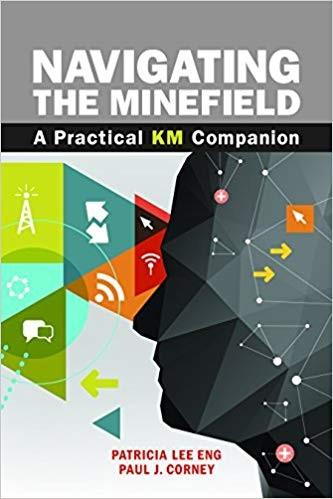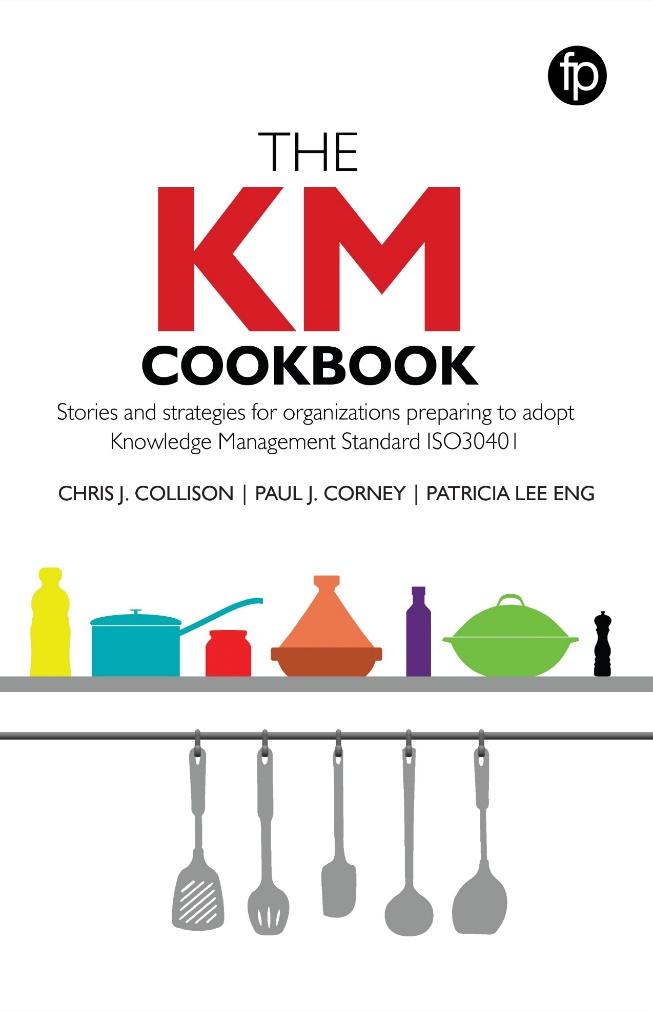Lucidea’s Lens: Knowledge Management Thought Leaders Part 69 – Paul Corney

Stan Garfield

Paul Corney helps people and organizations make better decisions that improve the way they work, and helps them realize their potential by making the best use of their knowledge.
Paul came to knowledge management while working in the City of London in the mid-1990s. He is the founder of Knowledge et al, a UK-based KM consultancy and the former Managing Partner of Sparknow LLP.
Paul is an experienced practitioner, presenter, masterclass leader and lecturer. A member of the British Standards Institute KM Standards Committee (KMS/1), he was also a visiting lecturer on Brighton University’s MBA on Knowledge & Innovation.
Selected Books


Managing Networks and Working Out Loud: Collaboration and Knowledge Matchmaking Skills
Knowledge Matchmaking?
Do people in Knowledge Management have the time, the confidence, and the knowledge of the business to be able to put forward ideas and broker connections? If they do, then here are a few tips to become a Knowledge Matchmaker:
- You have to be in it to win it: if you sit on the sidelines this will never happen.
- Be willing to take a risk: yes you might fall flat on your face! But experience tells me that if you go the extra mile people will come back for more.
- Be willing to do this without expectation of reward: it’s always difficult to measure the impact in a world of KPI’s. You have to play a long game but be willing to cut if you feel you are being taken for a ride.
- Be willing to acknowledge the contribution of others: from personal experience I’ve found there is nothing worse than someone taking what you’ve suggested and packaging it without attribution. A photo is a great way of saying thank you!
- Build trust so people are willing to confide in you and trust your judgement: unless you are willing to find out about people and what they do you will never be able to make these connections.
- Be clear about why you are making the introduction or sharing Knowledge: I used to be in the cc camp that so many inhabit believing that by informing everyone I was covering all bases. People are too busy and ignore ‘junk mail’.
- Develop your internal filtering mechanism: you have to know your business and identify who is going to be a taker vs. a reciprocator.
- Respect the contribution people make if you ask for advice: whatever you get back from people is important. They have committed scarce time and each time you ask for a response you are drawing on your reserve of credibility.
- Develop a skin as thick as a Rhino: you will be disappointed when others don’t follow your lead and use the contacts or information without acknowledgement. And remember 90% of people online are lurkers so will not go public with their thanks.
The future for Knowledge Managers?
The Skills (‘…ates) of a Knowledgeur
- Investigate: Are you putting a burning fire out / solving an immediate business need / addressing a risk (Operational KM) or is this driven by the vision from the top consistent with the organization’s business direction (Strategic KM)?
- Navigate: Work out / Map the critical knowledge areas of your organization and create a directory of the organization’s knowledge assets.
- Negotiate: Agree the scope of your role with your sponsors and be tough negotiating what success will look like and how it’s measured.
- Facilitate: So much of what a KM Manager does involves facilitation. You will become a hub knowing who to go to to ask if you don’t know yourself. You have to facilitate connections, meetings, interactions, events and communities. This requires resilience, a lot of social skills and a real understanding of cultural nuances.
- Collaborate: You are in alliance with business areas and occasionally external suppliers or partners. You have to be capable of virtual cross border collaboration.
- Communicate: Senior KMers tell you to devote 30% of your time to communicating what you do and getting feedback – it’s not just about broadcasting. Have your KM Elevator pitch always with you. Let all your stakeholders know what you are doing and why.
- Curate: So much of what passes for Knowledge Management is about creating and storing content and making it available for reuse. It’s more than the role formerly undertaken by Information Professionals and Librarians, here we are talking about being a custodian of organizational knowledge and organizational knowledge bases.
- Celebrate: The role can be a lonely one as reporting lines and sponsors change, yours is a cost not revenue line and the initial burst of enthusiasm fades. Collect stories, be prepared to acknowledge contributions, and celebrate successes.
Reflections on the ISO Standard for Knowledge Management Systems
What does the standard cover?
- It starts with an outline of the purpose of the standard, explaining why KM is important. It provides guiding principles and outlines the boundaries of KM.
- Section 3 defines knowledge and also knowledge management
- Section 4 covers the KM system, understanding the organization and its context and how KM supports this; understanding the needs of stakeholders. It outlines the KM system: the knowledge development/life cycle; enablers (roles, processes, technologies, governance and culture)
- Section 5 covers leadership and governance
- Section 6 covers planning and actions to address risks and opportunities
- There are three annexes on: the knowledge spectrum; boundaries between KM and adjacent disciplines; and KM culture.
Benefits of the standard
- It provides a benchmark for your KM management system and a guide to those organizations that are new to KM to help them avoid common pitfalls.
- It gives knowledge managers leverage in their organizations.
- It gives KM legitimacy as a profession.
Impact
- The standard is like a new kitchen without the utensils, the crockery, cookbook; it’s down to those who use it to determine how it will work for them.
- We hope that it provides a globally accepted framework of what should be in a KM program and how it should be supported and assessed.
- We are looking forward to it being drawn on by organizations that value KM.
Who will benefit?
- Undoubtedly consultants will develop offerings that purport to help organizations to prepare for an ISO KM Standards Audit. If that helps to raise standards then surely that’s a positive.
- However, we see the real beneficiary being KM practitioners, current and future in those organizations such as the public sector for which ISO Standards are a core component of their quality measurements.

Stan Garfield
Please enjoy Stan’s blog posts offering advice and insights drawn from many years as a KM practitioner. You may also want to download a free copy of his book, Lucidea’s Lens: Special Librarians & Information Specialists; The Five Cs of KM from Lucidea Press, and its precursor, Proven Practices for Promoting a Knowledge Management Program. Learn about Lucidea’s Presto, SydneyEnterprise, and GeniePlus software with unrivaled KM capabilities that enable successful knowledge curation and sharing.
Never miss another post. Subscribe today!
Similar Posts
Lucidea’s Lens: Knowledge Management Thought Leaders Part 106 – Hubert Saint-Onge
As the creator of the Knowledge Assets Framework Hubert has shaped how businesses integrate strategy leadership and knowledge sharing to drive performance.
Lucidea’s Lens: Knowledge Management Thought Leaders
Part 105 – James Robertson
James Robertson is a pioneer in intranet strategy and digital workplace design helping organizations create seamless employee experiences. As the Founder of Step Two and a respected industry voice he has shaped best practices in content management portals and digital experience design.
Lucidea’s Lens: Knowledge Management Thought Leaders
Part 104 – Vincent Ribière
Vincent Ribière advances knowledge and innovation management through AI creativity and KM. Explore his work in academia research and industry leadership.
Lucidea’s Lens: Knowledge Management Thought Leaders Part 103 – Tony Rhem
In this edition of Lucidea’s Lens: Knowledge Management Thought Leaders we highlight Dr. Tony Rhem a leading expert in AI big data information architecture and innovation. As CEO of AJ Rhem & Associates Tony has shaped the fields of knowledge management governance and emerging technologies.





Leave a Comment
Comments are reviewed and must adhere to our comments policy.
0 Comments